
Napa Valley: The Wine Lover's Paradise
Napa Valley, nestled in the heart of California, is a world-renowned destination for wine enthusiasts and nature lovers alike. Famous for its picturesque vineyards and top-notch wineries, Napa Valley offers an unforgettable experience for all its visitors. As you drive through the rolling hills and lush landscapes, you'll be greeted by charming towns, each with its own unique character and history. Beyond the vineyards, Napa Valley is home to a vibrant culinary scene, with Michelin-starred restaurants and farm-to-table eateries that celebrate the region's rich agricultural heritage. The local markets are brimming with fresh produce, artisanal cheeses, and handcrafted goods, making it a haven for food lovers. Don’t miss out on a visit to the Oxbow Public Market, where you can sample a variety of local delights. For those seeking relaxation, Napa Valley boasts luxurious spas and wellness centers, offering rejuvenating treatments amidst serene surroundings. The natural hot springs in Calistoga are a must-visit for their healing properties. Outdoor enthusiasts will also find plenty to do, from hiking and biking trails to hot air balloon rides that provide breathtaking views of the valley. With its blend of world-class wines, gourmet food, and stunning scenery, Napa Valley is a destination that promises to captivate and inspire.
Local tips in Napa Valley
- Book winery tours in advance, especially during peak season, to ensure availability.
- Visit during the fall harvest season (August to October) for the best wine tasting experience.
- Wear comfortable shoes for exploring vineyards and outdoor activities.
- Take advantage of the Napa Valley Wine Train for a scenic and relaxing tour.
- Explore smaller, family-owned wineries for a more intimate experience.
Napa Valley: The Wine Lover's Paradise
Napa Valley, nestled in the heart of California, is a world-renowned destination for wine enthusiasts and nature lovers alike. Famous for its picturesque vineyards and top-notch wineries, Napa Valley offers an unforgettable experience for all its visitors. As you drive through the rolling hills and lush landscapes, you'll be greeted by charming towns, each with its own unique character and history. Beyond the vineyards, Napa Valley is home to a vibrant culinary scene, with Michelin-starred restaurants and farm-to-table eateries that celebrate the region's rich agricultural heritage. The local markets are brimming with fresh produce, artisanal cheeses, and handcrafted goods, making it a haven for food lovers. Don’t miss out on a visit to the Oxbow Public Market, where you can sample a variety of local delights. For those seeking relaxation, Napa Valley boasts luxurious spas and wellness centers, offering rejuvenating treatments amidst serene surroundings. The natural hot springs in Calistoga are a must-visit for their healing properties. Outdoor enthusiasts will also find plenty to do, from hiking and biking trails to hot air balloon rides that provide breathtaking views of the valley. With its blend of world-class wines, gourmet food, and stunning scenery, Napa Valley is a destination that promises to captivate and inspire.
When is the best time to go to Napa Valley?
Iconic landmarks you can’t miss
Napa Valley Wine Train
Discover the enchanting Napa Valley Wine Train, where breathtaking views and gourmet dining merge on a scenic railway adventure through wine country.
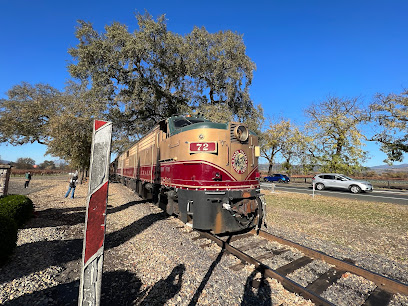
Domaine Carneros
Experience the elegance of Domaine Carneros, a premier winery in Napa Valley, known for its stunning views and exquisite sparkling wines.
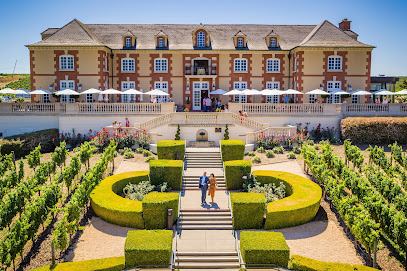
Skyline Wilderness Park
Explore Skyline Wilderness Park: A Nature Lover's Sanctuary in Napa Valley Offering Scenic Trails and Outdoor Fun.
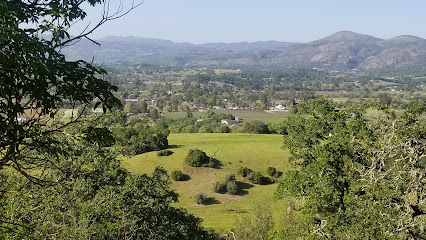
Welcome to Napa Valley Sign (South)
Discover the iconic Welcome to Napa Valley Sign, your gateway to the lush vineyards and exquisite wineries of California's premier wine country.
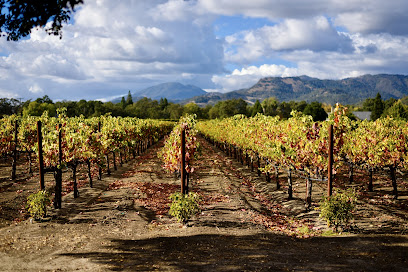
MONTICELLO Napa Valley
Experience the artistry of winemaking at Monticello Napa Valley, where breathtaking views meet exquisite wines in the heart of California's wine country.
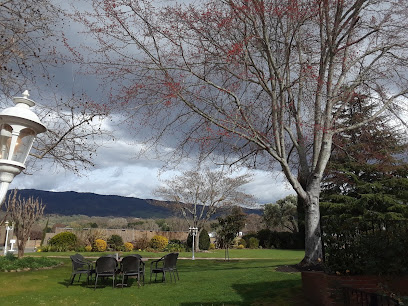
Sequoia Grove Winery
Discover the exquisite flavors of Napa Valley at Sequoia Grove Winery, where world-class wines meet breathtaking vineyard views.
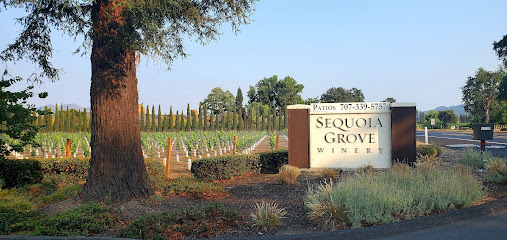
Mumm Napa
Discover the elegance of sparkling wines amidst breathtaking vineyard views at Mumm Napa, a premier winery in the heart of California's wine country.
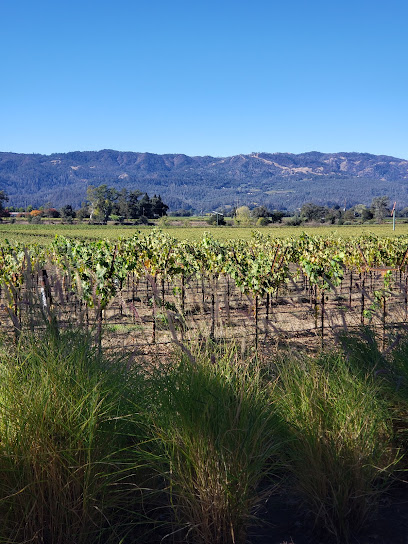
Artesa Vineyards & Winery
Unwind in the scenic beauty of Napa Valley at Artesa Vineyards & Winery, where exquisite wines meet spectacular views.
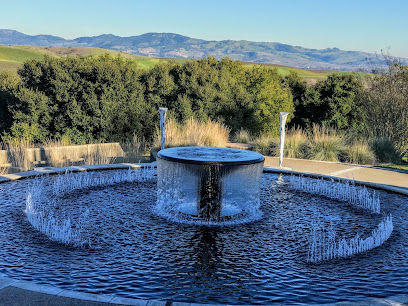
Napa Valley Expo
Experience the vibrant atmosphere of Napa Valley Expo, where culture, entertainment, and local flavors come together in the heart of Napa.
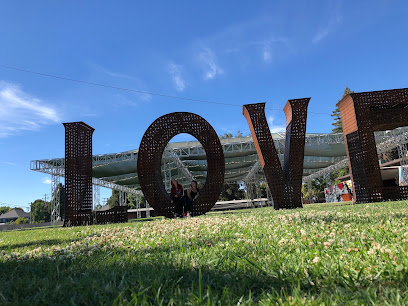
Silver Oak Napa Valley
Explore Silver Oak Napa Valley, where exceptional Cabernet Sauvignon meets breathtaking vineyard views in the heart of California's wine country.
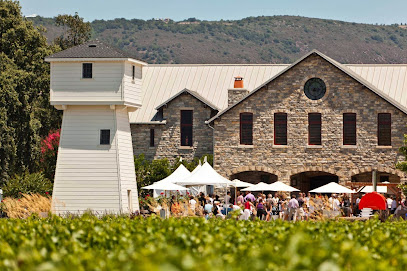
Napa Valley Welcome Center
Discover Napa Valley's treasures at the Napa Valley Welcome Center, your essential guide to exploring wine country’s best offerings and experiences.
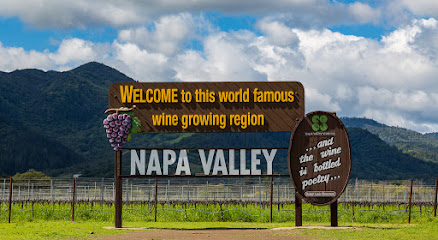
Black Stallion Estate Winery
Experience the essence of Napa Valley at Black Stallion Estate Winery, where exquisite wines meet stunning vineyard views.
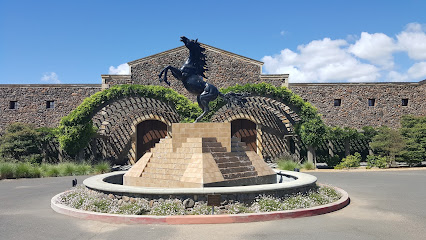
Bouchaine Vineyards
Explore Bouchaine Vineyards in Napa Valley for exquisite wines, scenic views, and a delightful insight into the art of winemaking.
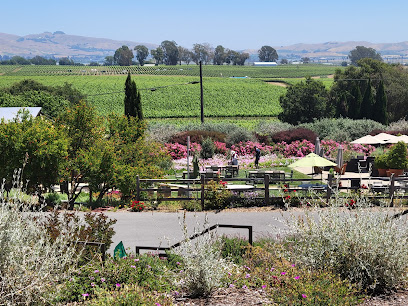
Napa Valley Wine Trolley
Explore Napa Valley's stunning vineyards and world-class wineries aboard the charming Napa Valley Wine Trolley for an unforgettable experience.
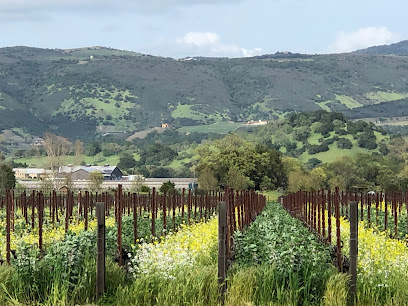
Chimney Rock Winery
Experience the breathtaking views and exquisite wines at Chimney Rock Winery, a must-visit gem in Napa Valley's renowned wine country.
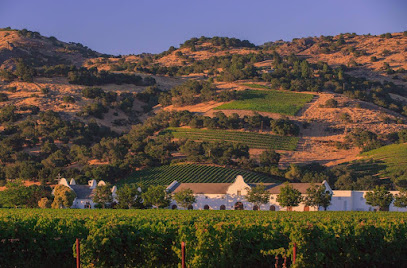
Unmissable attractions to see
Lake Berryessa
Escape the vineyards and discover Lake Berryessa, Napa's hidden gem, offering year-round recreation from watersports and fishing to hiking and wildlife viewing amidst stunning scenery.
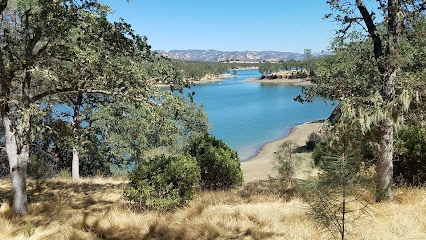
Domaine Carneros
Experience the elegance of a French-inspired château in Napa Valley, where méthode traditionnelle sparkling wines and estate-grown Pinot Noir offer a taste of luxury and breathtaking vineyard views.
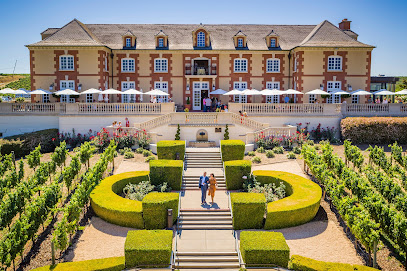
Welcome to Napa Valley Sign (South)
The iconic gateway to California's wine country, the Welcome to Napa Valley sign has greeted millions since 1949, symbolizing the region's rich heritage and world-class wines.
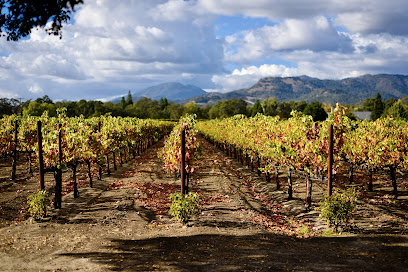
Fuller Park
Explore Fuller Park in Napa, a serene city park perfect for relaxation, picnics, and enjoying the beautiful historic surroundings.
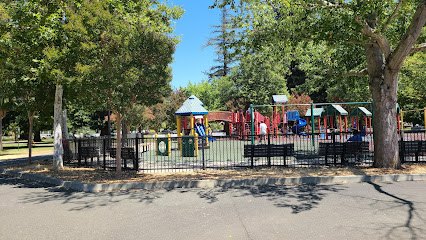
MONTICELLO Napa Valley
Experience the charm of a Jefferson-inspired estate in Napa Valley, where handcrafted wines and picturesque gardens create a memorable wine-tasting journey for every visitor.
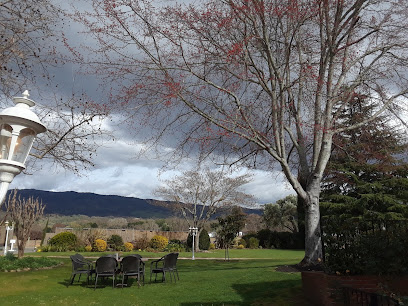
Alston Park
Discover Napa's natural side at Alston Park: Hike scenic trails, enjoy panoramic views, and let your dog run free in this 157-acre outdoor haven.
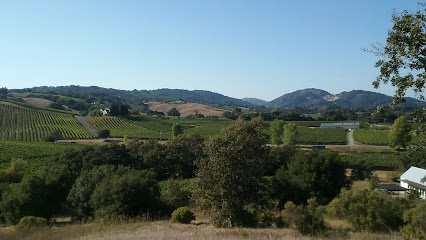
Glory Hole
Witness the awe-inspiring Glory Hole spillway at Lake Berryessa, a stunning display of nature and engineering amidst year-round recreation and scenic beauty in Napa County.
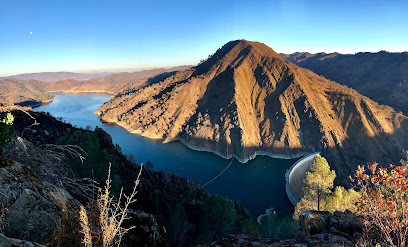
Westwood Hills Park
Escape to nature in Napa Valley at Westwood Hills Park, offering scenic hiking trails, panoramic views, and a tranquil retreat just minutes from downtown.
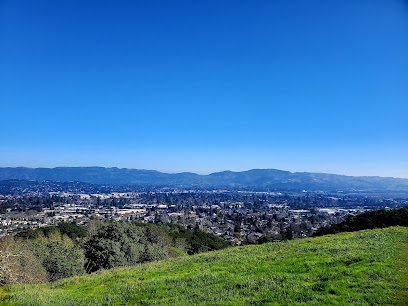
Yountville Park
Discover Yountville Park, a vibrant community hub in Napa Valley offering green spaces, playgrounds, and events for relaxation and recreation amidst world-class wineries and dining.
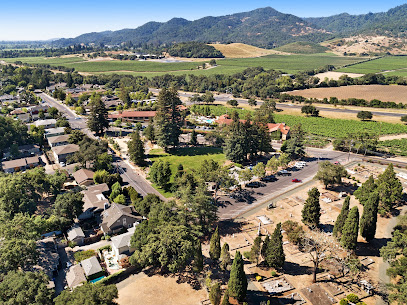
Napa Valley Balloons, Inc
Discover the stunning landscapes of Napa Valley from above with an unforgettable hot air balloon ride, a must-try experience for every traveler.
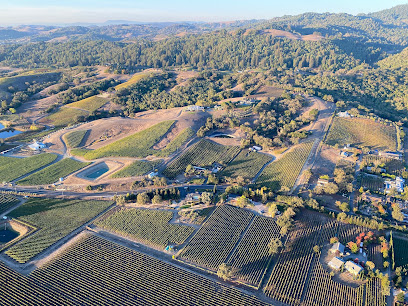
Stag's Leap Wine Cellars
Explore the elegance of Stag's Leap Wine Cellars, a premier Napa Valley winery known for its exquisite wines and stunning vineyard views.
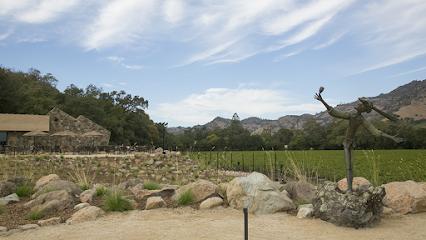
Wetlands Edge Park
Discover the serene beauty of Wetlands Edge Park in American Canyon, a haven for birdwatching, hiking, and nature lovers along the Napa River and Bay Trail.
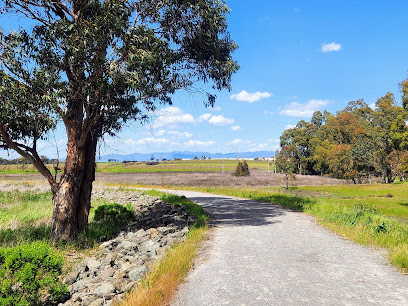
Mt Tamalpais
Experience breathtaking panoramic views and diverse natural beauty atop Mount Tamalpais, Marin's iconic peak, offering hiking, history, and unforgettable moments in the San Francisco Bay Area.
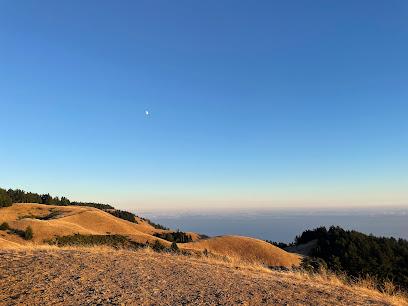
Napa Valley Welcome Center
Discover Napa Valley's hidden gems and iconic destinations with expert guidance, personalized itineraries, and insider tips from the Napa Valley Welcome Center, your gateway to wine country.
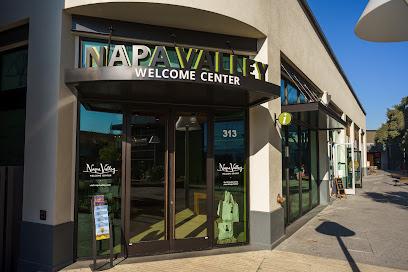
Joseph Phelps Vineyards
Experience the legacy of Napa Valley winemaking at Joseph Phelps Vineyards, where exceptional estate-grown wines, stunning vineyard views, and sustainable practices create an unforgettable tasting journey.
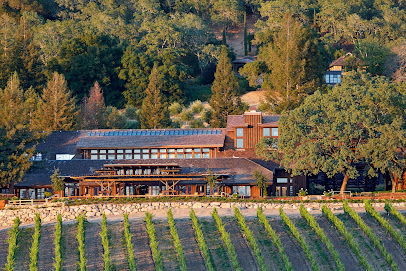
Essential places to dine
Bistro Don Giovanni
Experience authentic Italian cuisine at Bistro Don Giovanni in Napa Valley, where exquisite flavors meet stunning vineyard views.
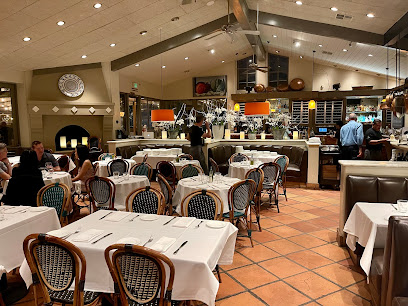
Mustards Grill
Discover Mustards Grill: A premier American restaurant in Napa Valley known for its fresh ingredients and exquisite flavors.
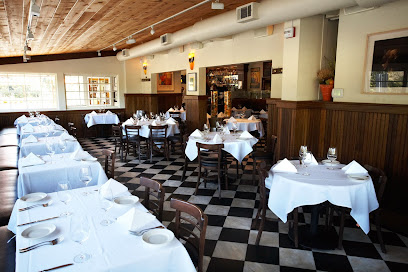
Bottega Napa Valley
Experience fine Italian dining at Bottega Napa Valley, where authentic flavors meet local ingredients in a stunning setting.
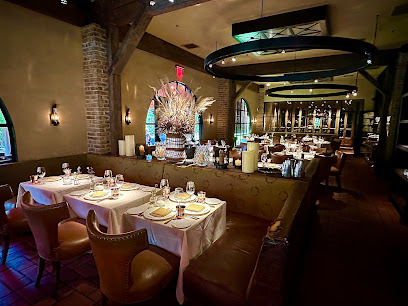
Boon Fly Café
Experience American comfort food at Boon Fly Café in Napa Valley – where fresh ingredients meet warm hospitality.
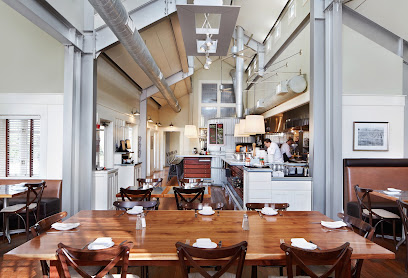
Allegria
Experience authentic Italian cuisine at Allegria in Napa Valley – where tradition meets local flavors in every dish.
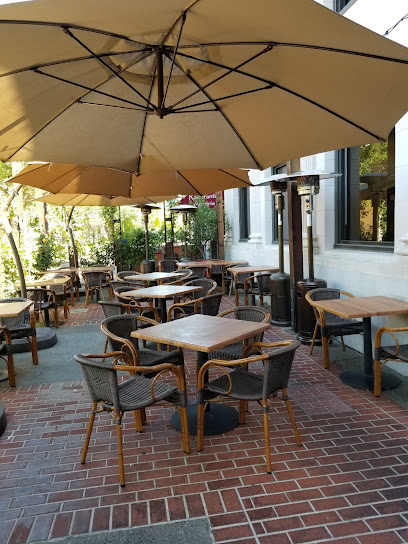
Morimoto Napa
Experience exquisite Japanese cuisine at Morimoto Napa – where culinary artistry meets the charm of wine country.
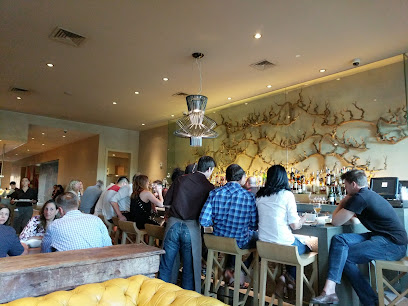
Brix
Discover Brix in Napa Valley: A New American restaurant offering exquisite cuisine and stunning vineyard views for an unforgettable dining experience.
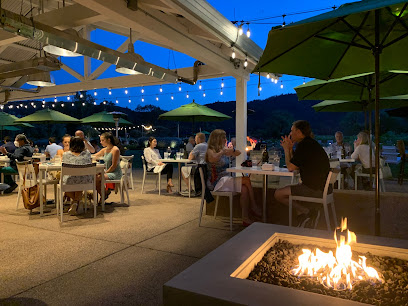
Napkins Bar and Grill
Discover the perfect blend of grilled specialties and fine wines at Napkins Bar and Grill in Napa Valley.
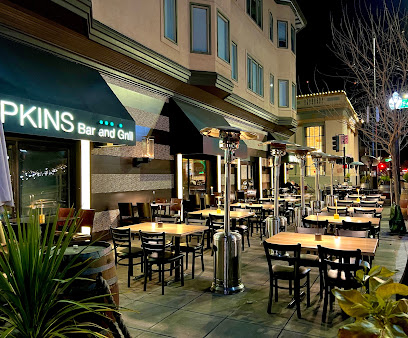
Grace's Table
Experience New American cuisine at Grace's Table, where local ingredients meet culinary creativity in Napa's charming bistro atmosphere.
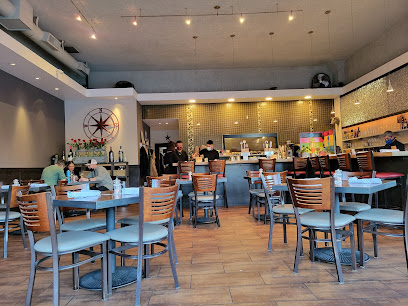
Cole's Chop House
Experience exquisite steak dining at Cole's Chop House in Napa Valley - where quality meets tradition in an inviting atmosphere.
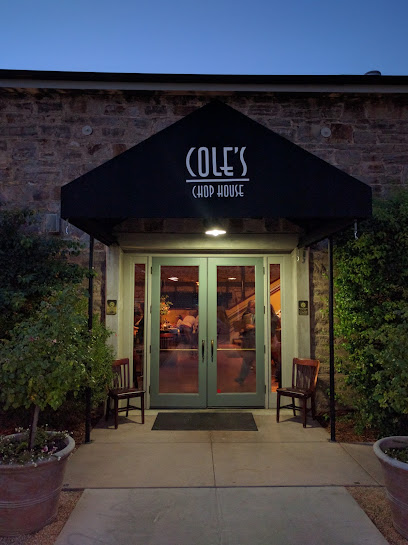
Hog Island Oyster Co
Discover Hog Island Oyster Co: Napa's premier oyster bar offering fresh seafood and a vibrant dining experience in the heart of wine country.
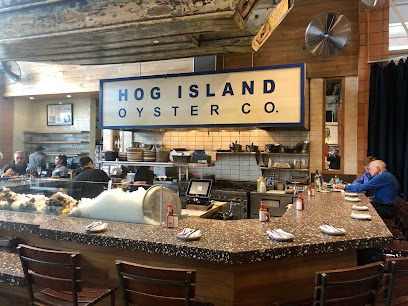
Angele Restaurant & Bar
Experience exquisite French cuisine at Angele Restaurant & Bar in Napa Valley, where culinary artistry meets stunning riverside views.
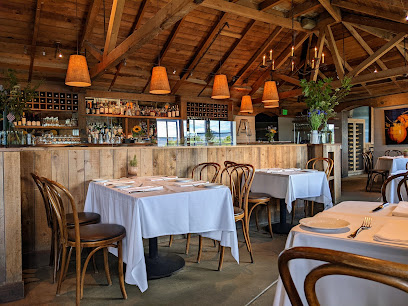
Tarla Mediterranean Bar + Grill
Discover the rich flavors of the Mediterranean at Tarla Bar + Grill in Napa Valley - where every meal is a journey through taste.
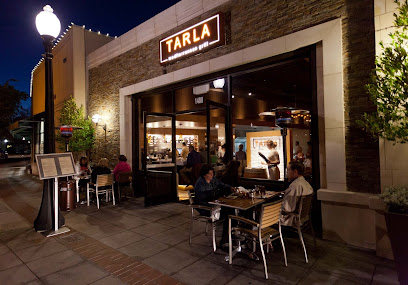
Fume
Experience culinary excellence at Fume Bistro in Napa Valley - where fresh ingredients meet exceptional flavor.
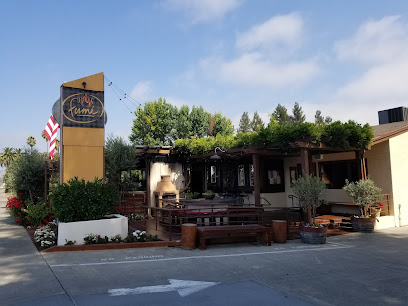
Celadon
Experience the eclectic flavors of Napa Valley at Celadon – where local ingredients meet global cuisine in an inviting atmosphere.
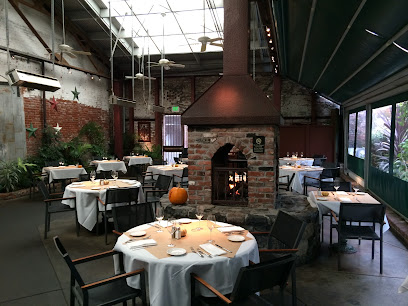
Markets, malls and hidden boutiques
Napa Premium Outlets
Experience stylish shopping at Napa Premium Outlets, where luxury meets affordability in the heart of California's wine country.
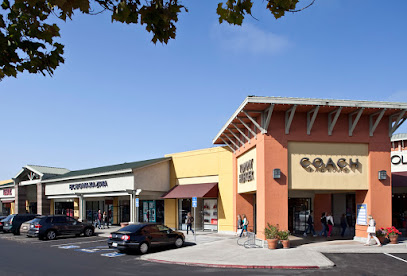
South Napa Market Place
Discover the South Napa Market Place, a vibrant shopping destination offering unique stores, delicious dining, and a taste of local Napa culture.
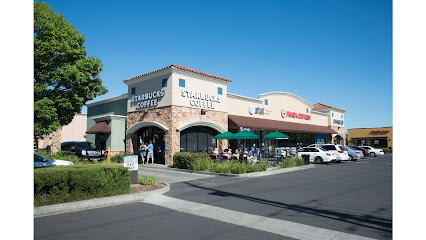
Bel Aire Plaza
Discover the ultimate shopping and dining experience at Bel Aire Plaza in Napa, California, where over 100 stores await your exploration.
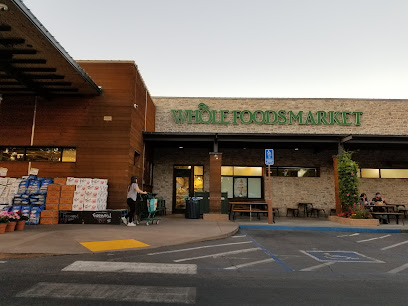
Napa General Store
Discover Napa General Store: A charming blend of American cuisine, local wines, and unique artisan gifts in the heart of Napa Valley.
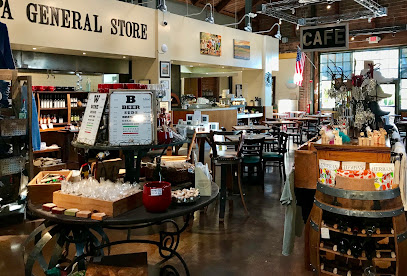
River Park Shopping Center
Explore the River Park Shopping Center in Napa, California - a vibrant shopping and dining destination perfect for tourists seeking local charm and variety.
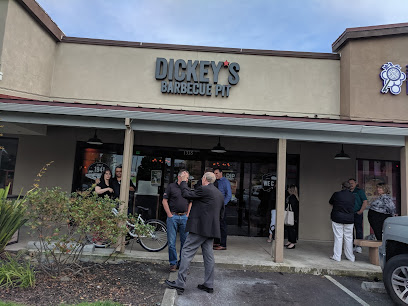
First Street Napa
Explore First Street Napa: A Unique Shopping and Dining Destination in the Heart of Napa Valley.
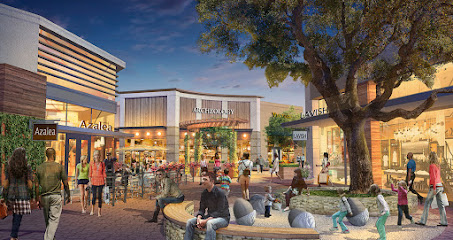
Target
Discover Target in Napa: Your ultimate shopping hub for clothing, home goods, toys, and electronics in a vibrant department store setting.
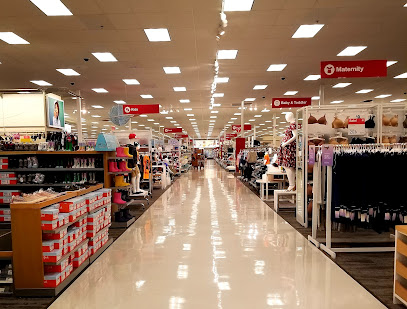
Vintage Sweet Shoppe
Experience the delightful flavors of Vintage Sweet Shoppe, a charming dessert haven in Napa, offering gourmet chocolates, ice creams, and local wines.
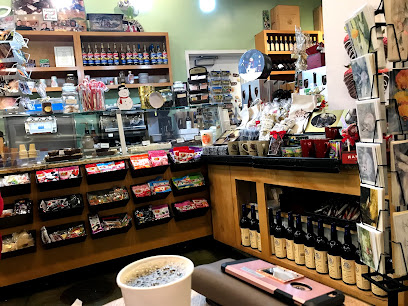
Antiques On Second
Discover unique vintage treasures at Antiques On Second in Napa, a must-visit destination for antique lovers and collectors.
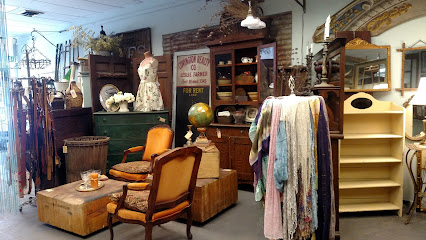
The grape yard shopping center
Explore The Grape Yard Shopping Center in Napa for a unique blend of shopping and dining experiences, all in a vibrant atmosphere.
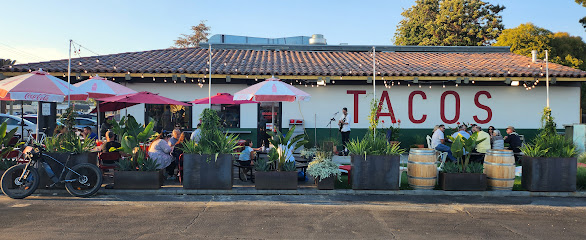
Boho Lifestyle
Explore unique fashion finds at Boho Lifestyle Boutique in Napa, where local artistry meets contemporary style for an unforgettable shopping experience.
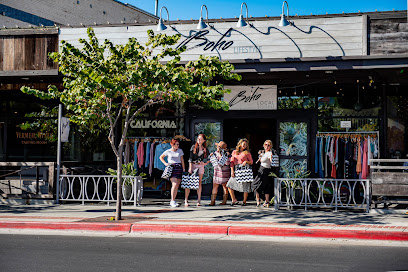
Makers Market
Explore the heart of Napa at Makers Market, your go-to destination for unique gifts and locally crafted treasures.
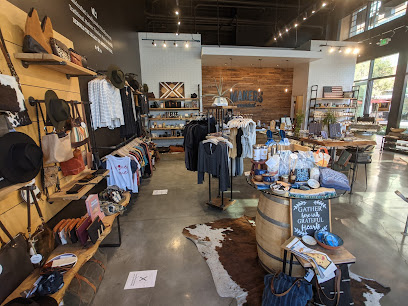
Inti
Discover unique gifts, clothing, and jewelry at Inti, Napa's premier gift shop celebrating local artistry and craftsmanship.
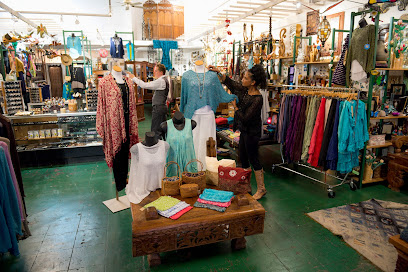
Betty's Girl Napa
Explore unique vintage clothing and bespoke dressmaking at Betty's Girl Napa, where every piece tells a story of timeless style and elegance.
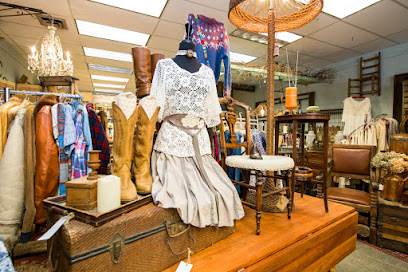
The Bennington Napa Valley
Discover unique gifts and local treasures at The Bennington Napa Valley, the ultimate destination for souvenirs and artisan products.
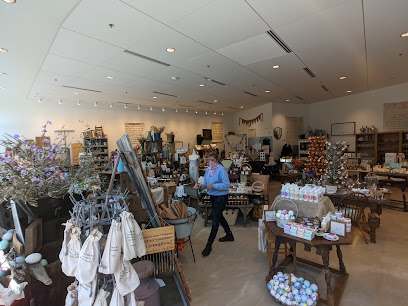
Essential bars & hidden hideouts
Bounty Hunter Wine Bar & Smokin' BBQ
Experience the perfect fusion of smoky barbecue and exquisite wines at Bounty Hunter Wine Bar & Smokin' BBQ in Napa Valley.
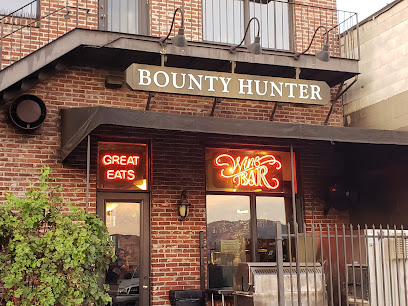
Napkins Bar & Grill
Experience the perfect blend of grill and wine bar at Napkins Bar & Grill, where Napa's flavors come alive in a charming setting.
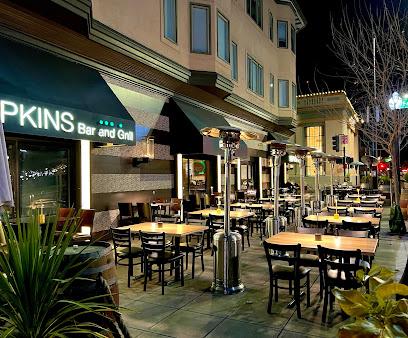
Angele Restaurant & Bar
Discover the essence of French cuisine at Angele Restaurant & Bar in Napa, where exquisite dishes meet a charming atmosphere.
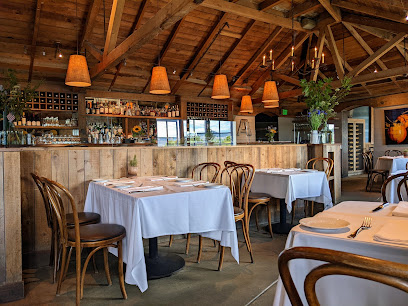
Hop Creek Pub
Experience the best of Napa Valley's culinary scene at Hop Creek Pub, where American comfort food meets a welcoming atmosphere.
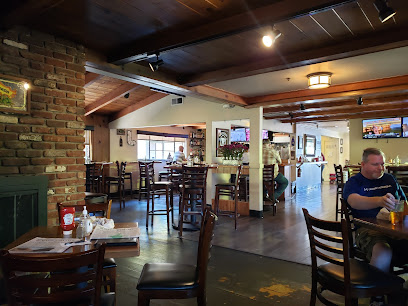
Napa Palisades Saloon
Discover Napa Palisades Saloon, where delicious gastropub cuisine meets local brews in the heart of Napa Valley’s vibrant culinary scene.
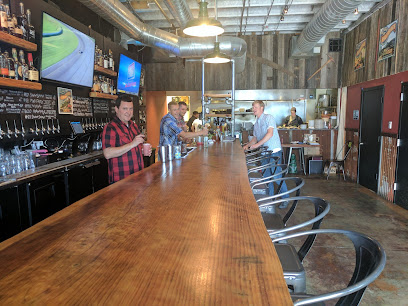
NapaSport Steakhouse and Sports Lounge
Discover NapaSport Steakhouse and Sports Lounge, where culinary excellence meets an exhilarating sports atmosphere in the heart of Napa.
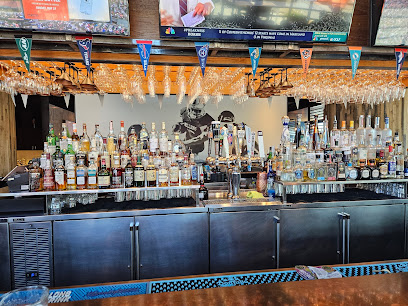
Norman Rose Tavern
Discover the flavors of America at Norman Rose Tavern, where local ingredients meet craft brewing in a cozy Napa atmosphere.
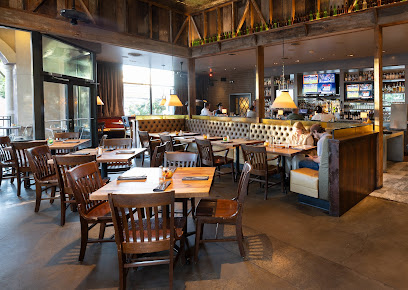
Sky & Vine Rooftop Bar
Experience breathtaking views and exquisite drinks at Sky & Vine Rooftop Bar, Napa's premier destination for relaxation and vibrant nightlife.
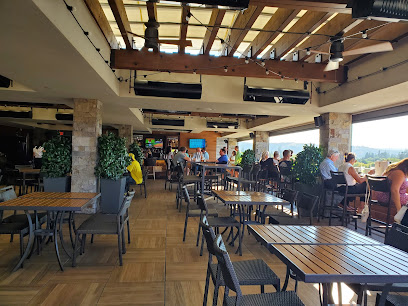
Carpe Diem Restaurant & Bar
Experience the best of Napa Valley at Carpe Diem Restaurant & Bar, where American cuisine meets an extensive wine selection in a welcoming atmosphere.
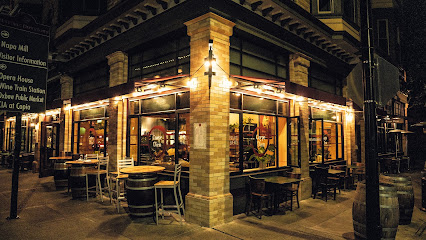
Cadet Wine & Beer Bar
Experience the best of Napa Valley at Cadet Wine & Beer Bar, where local wines and craft beers meet inviting ambiance and friendly service.
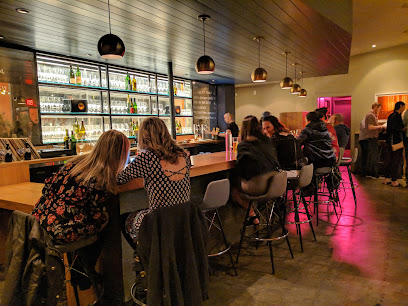
Wilfred's Lounge
Experience the vibrant tiki atmosphere and exquisite cuisine at Wilfred's Lounge in Napa, California, a culinary gem for every traveler.
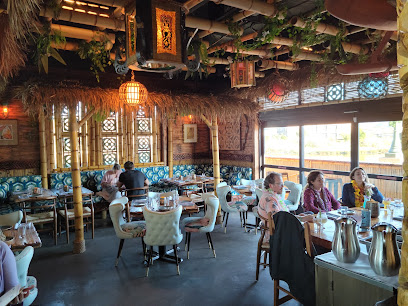
Barnhouse Napa Pub
Experience the warmth of Barnhouse Napa Pub, a charming venue for coffee lovers and whiskey enthusiasts in the heart of Napa Valley.
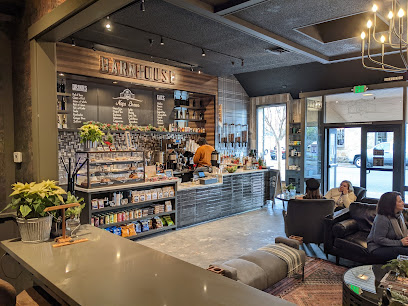
Stone's Sports Bar & Lounge
Discover the perfect blend of relaxation and excitement at Stone's Sports Bar & Lounge in Napa, where cocktails and camaraderie await.
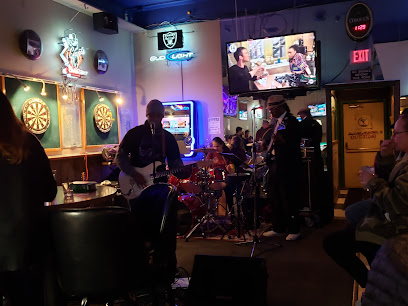
Green Door
Experience the essence of Napa with innovative cocktails and a cozy atmosphere at Green Door, the local favorite cocktail bar.
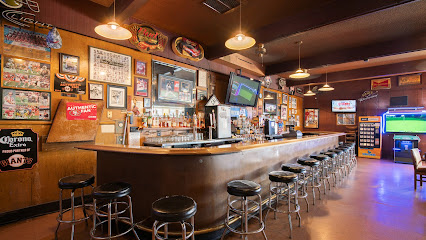
Local Phrases about Napa Valley
-
- HelloHowdy
[haʊdi] - GoodbyeSee ya
[siː jə] - YesYep
[jɛp] - NoNope
[noʊp] - Please/You're welcomePlease/No problem
[pliːz/noʊ ˈprɑbləm] - Thank youThanks
[θæŋks] - Excuse me/SorryPardon me/My bad
[ˈpɑrdn mi/maɪ bæd] - How are you?How's it going?
[haʊz ɪt ˈɡoʊɪŋ] - Fine. And you?Good. You?
[ɡʊd juː] - Do you speak English?Do you talk English?
[du juː tɔk ˈɪŋɡlɪʃ] - I don't understandI don't get it
[aɪ doʊnt ɡɛt ɪt]
- HelloHowdy
-
- I'd like to see the menu, pleaseCan I check out the menu?
[kæn aɪ ʧɛk aʊt ðə ˈmɛnju] - I don't eat meatI'm veggie
[aɪm ˈvɛdʒi] - Cheers!Cheers!
[ʧɪrz] - I would like to pay, pleaseI'll settle up, please
[aɪl ˈsɛtl ʌp pliːz]
- I'd like to see the menu, pleaseCan I check out the menu?
-
- Help!Help!
[hɛlp] - Go away!Get lost!
[ɡɛt lɔst] - Call the Police!Ring the Cops!
[rɪŋ ðə kɑps] - Call a doctor!Get a doc!
[ɡɛt ə dɑk] - I'm lostI'm turned around
[aɪm tɜrnd əˈraʊnd] - I'm illI'm sick
[aɪm sɪk]
- Help!Help!
-
- I'd like to buy...I wanna get...
[aɪ ˈwɑnə ɡɛt] - I'm just lookingJust browsing
[ʤʌst ˈbraʊzɪŋ] - How much is it?What's the price?
[wɑts ðə praɪs] - That's too expensiveThat's pricey
[ðæts ˈpraɪsi] - Can you lower the price?Can you give a discount?
[kæn juː ɡɪv ə ˈdɪskaʊnt]
- I'd like to buy...I wanna get...
-
- What time is it?What's the time?
[wɑts ðə taɪm] - It's one o'clockIt's one
[ɪts wʌn] - Half past (10)Ten thirty
[tɛn ˈθɜrti] - MorningMorning
[ˈmɔrnɪŋ] - AfternoonAfternoon
[ˌæftərˈnun] - EveningEvening
[ˈivnɪŋ] - YesterdayYesterday
[ˈjɛstərˌdeɪ] - TodayToday
[təˈdeɪ] - TomorrowTomorrow
[təˈmɑroʊ] - 1One
[wʌn] - 2Two
[tu] - 3Three
[θri] - 4Four
[fɔr] - 5Five
[faɪv] - 6Six
[sɪks] - 7Seven
[ˈsɛvən] - 8Eight
[eɪt] - 9Nine
[naɪn] - 10Ten
[tɛn]
- What time is it?What's the time?
-
- Where's a/the...?Where can I find...?
[wɛr kæn aɪ faɪnd] - What's the address?What's the street?
[wɑts ðə strit] - Can you show me (on the map)?Can you point it out?
[kæn juː pɔɪnt ɪt aʊt] - When's the next (bus)?When's the next bus?
[wɛnz ðə nɛkst bʌs] - A ticket (to ....)A pass (to ....)
[eɪ pæs tu]
- Where's a/the...?Where can I find...?
History of Napa Valley
-
Long before the arrival of European settlers, Napa Valley was home to indigenous tribes such as the Wappo. They thrived in the region for thousands of years, living off the fertile land and abundant wildlife. The Wappo people developed intricate basketry and had a deep connection to the land, which is still respected and remembered today.
-
In the early 19th century, Napa Valley came under Spanish rule, followed by Mexican control after Mexico gained independence from Spain in 1821. The Spanish missionaries and Mexican settlers introduced European farming techniques and crops, including the first grapevines. This laid the groundwork for Napa's future as a premier wine-growing region.
-
The mid-19th century brought an influx of American settlers, especially during the California Gold Rush of 1849. Although Napa Valley itself was not a gold mining hotspot, its strategic location made it a key supply and trade route for miners heading to the Sierra Nevada. This period saw the establishment of towns and infrastructure that would support future growth.
-
The late 19th century marked the true beginning of Napa Valley's wine industry. In 1861, Charles Krug founded Napa Valley's first commercial winery, setting the stage for future viticulture. Other pioneering families, like the Beringers and the Mondavis, followed suit, establishing wineries that would become iconic names in the wine world.
-
The Prohibition era (1920-1933) was a challenging time for Napa Valley's wine industry. Many wineries were forced to close, while others pivoted to producing sacramental wine or diversifying into other agricultural products. Despite the hardships, a few resilient wineries managed to survive, preserving Napa's winemaking heritage for future generations.
-
After the repeal of Prohibition in 1933, Napa Valley's wine industry slowly began to recover. The 1940s and 1950s saw a resurgence in wine production, with a focus on quality and innovation. This period also saw the establishment of key institutions like the Napa Valley Vintners association, which played a crucial role in marketing and regulating the region's wine industry.
-
A pivotal moment in Napa Valley's history came in 1976 with the 'Judgment of Paris.' In a blind tasting event held in Paris, Napa Valley wines famously outperformed French wines in both red and white categories. This event catapulted Napa Valley onto the global wine stage and solidified its reputation as a world-class wine-producing region.
-
Today, Napa Valley is synonymous with luxury, quality, and innovation in winemaking. The region boasts over 400 wineries, each with its own unique story and approach to viticulture. Napa Valley has also become a destination for culinary excellence, with numerous Michelin-starred restaurants and gourmet food experiences. The valley continues to evolve, blending its rich history with modern advancements to maintain its status as a premier travel destination.
Napa Valley Essentials
-
Napa Valley is located in Northern California, approximately 50 miles northeast of San Francisco. The nearest major airport is San Francisco International Airport (SFO), but you can also fly into Oakland International Airport (OAK) or Sacramento International Airport (SMF). From any of these airports, you can rent a car, take a shuttle, or hire a private car service to reach Napa Valley. The drive takes about 1.5 to 2 hours, depending on traffic.
-
While in Napa Valley, renting a car is the most convenient way to explore the region, especially since many wineries and attractions are spread out. Alternatively, you can use ride-sharing services like Uber and Lyft. For a more immersive experience, consider joining a guided wine tour, which often includes transportation. The Napa Valley Wine Train is another unique option for both transportation and sightseeing. Public transportation is limited, but the Vine Transit bus system can get you to key locations within the valley.
-
The official currency is the United States Dollar (USD). Credit and debit cards are widely accepted in Napa Valley, including at most wineries, restaurants, and shops. However, it's a good idea to carry some cash for small purchases or tips. ATMs are readily available in towns like Napa, Yountville, St. Helena, and Calistoga.
-
Napa Valley is generally a safe destination for tourists. However, as with any travel destination, it's important to remain vigilant. Avoid leaving valuables in your car and be cautious when walking alone at night. While there aren't any specifically high-crime areas targeting tourists, it is always best to stay aware of your surroundings, especially in less populated areas.
-
In case of emergency, dial 911 for immediate assistance. Napa Valley has several medical facilities, including Queen of the Valley Medical Center in Napa. Pharmacies are also available in the larger towns. It's advisable to have travel insurance that covers medical emergencies. For non-emergency situations, local law enforcement and tourist information centers can provide assistance.
-
Fashion: Do dress in layers, as temperatures can vary greatly from morning to night. Casual dress is generally acceptable, but some high-end restaurants may have a dress code. Religion: Do respect local customs, but Napa Valley is generally relaxed and not particularly religious. Public Transport: Do plan your route in advance if using public transport, as services are limited. Don't rely solely on public buses for winery visits. Greetings: Do greet people with a smile and a handshake. Californians are generally friendly and informal. Eating & Drinking: Do take advantage of wine tastings and try local cuisine. Don't drink and drive; use a designated driver or ride-sharing service.
-
To experience Napa Valley like a local, consider visiting during the off-season (November through April) when the crowds are smaller, and the pace is more relaxed. Explore smaller, family-owned wineries for a more intimate experience. Don't miss the local farmers' markets for fresh produce and artisanal goods. For dining, make reservations well in advance, especially for popular restaurants. Take advantage of the numerous hiking and biking trails to explore the picturesque landscape beyond the vineyards.
Trending Landmarks in Napa Valley
-
Napa Valley Wine Train
-
Domaine Carneros
-
Skyline Wilderness Park
-
Welcome to Napa Valley Sign (South)
-
MONTICELLO Napa Valley
-
Sequoia Grove Winery
-
Mumm Napa
-
Artesa Vineyards & Winery
-
Napa Valley Expo
-
Silver Oak Napa Valley
-
Napa Valley Welcome Center
-
Black Stallion Estate Winery
-
Bouchaine Vineyards
-
Napa Valley Wine Trolley
-
Chimney Rock Winery
Nearby Cities to Napa Valley
-
Things To Do in Martinez
-
Things To Do in Concord
-
Things To Do in Berkeley
-
Things To Do in Walnut Creek
-
Things To Do in Oakland
-
Things To Do in Antioch
-
Things To Do in Danville
-
Things To Do in San Francisco
-
Things To Do in San Leandro
-
Things To Do in San Ramon
-
Things To Do in Brentwood
-
Things To Do in Daly City
-
Things To Do in Castro Valley
-
Things To Do in San Lorenzo
-
Things To Do in Hayward













